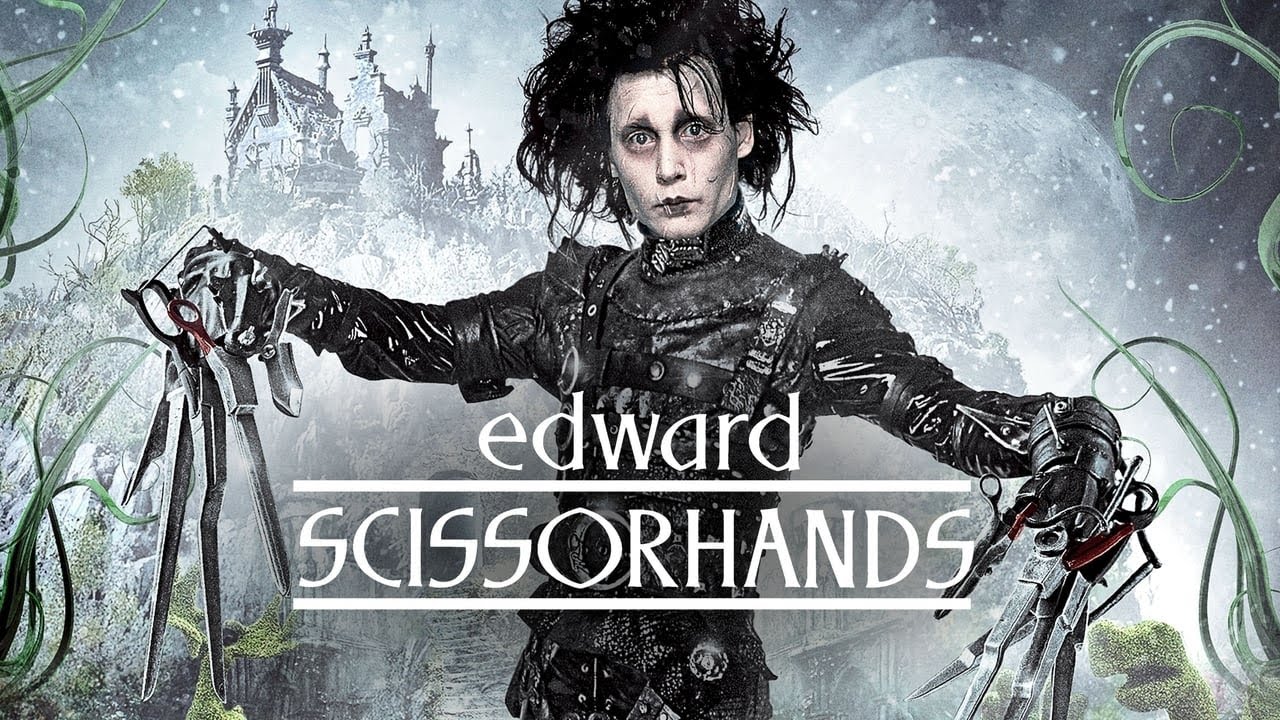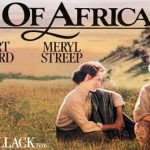Edward Scissorhands (1990)

“Edward Scissorhands,” released in 1990, is a quintessential film directed by the visionary Tim Burton. This romantic fantasy film blends elements of science fiction with a deeply emotional narrative, creating a timeless story that resonates with audiences across generations. With its unique premise, stunning visuals, and unforgettable performances, the film has earned its place as a classic in American cinema.
The story revolves around Edward, portrayed by Johnny Depp, an artificial man who possesses scissors for hands. He is the unfinished creation of an eccentric inventor, played by Vincent Price, who dies before he can give Edward a proper set of hands. Left to navigate the world on his own, Edward lives in isolation in a dark, Gothic castle until he is discovered by Peg Boggs (Dianne Wiest), a kind-hearted Avon saleswoman. Peg takes Edward in, bringing him into her pastel-colored suburban neighborhood, where his unusual appearance and abilities quickly draw both fascination and fear from the residents.
The film’s visual style is one of its most striking features. Tim Burton masterfully contrasts the stark, gloomy aesthetics of Edward’s castle with the vibrant, cookie-cutter homes of suburbia. This juxtaposition serves to highlight Edward’s outsider status and the themes of isolation and acceptance. The whimsical yet melancholic score by composer Danny Elfman further enhances the film’s atmosphere, blending seamlessly with the visual storytelling.
Edward’s character is a poignant representation of innocence and vulnerability. Despite his fearsome appearance, he possesses a gentle spirit and a deep capacity for love and creativity. His unique talent for sculpting hedges and cutting hair reveals an artistic side that contrasts sharply with the prejudice he faces from the community. As Edward attempts to fit into this new world, he grapples with feelings of loneliness and rejection, ultimately prompting a deeper exploration of societal norms and the nature of humanity.
The film also features a remarkable supporting cast, including Winona Ryder as Kim, Peg’s daughter, who becomes Edward’s love interest. Kim is initially wary of Edward but gradually comes to see beyond his exterior, forming a tender bond with him. Their relationship embodies the central theme of love transcending appearances, illustrating how genuine connection can flourish in the face of prejudice. Winona Ryder’s performance adds emotional depth to the narrative, making Kim a relatable and sympathetic character.

One of the film’s most memorable aspects is its exploration of fear and misunderstanding in human interactions. As Edward tries to integrate into society, he faces suspicion and hostility from the townspeople. Burton deftly illustrates how fear of the unknown can lead to alienation and violence, culminating in a heartbreaking climax that forces Edward to confront the darkness in humanity. This commentary on societal norms and the struggles of outsiders resonates strongly, making the film relevant even decades after its release.

“Edward Scissorhands” received critical acclaim upon its release, earning nominations for various prestigious awards, including an Academy Award for Best Makeup. Its impact on popular culture is undeniable, with Edward becoming an iconic figure in cinema history. The film has inspired numerous interpretations, merchandise, and even Halloween costumes, solidifying its status as a beloved classic.

In conclusion, “Edward Scissorhands” is a beautifully crafted film that masterfully blends fantasy, romance, and social commentary. Tim Burton’s direction, combined with Johnny Depp’s unforgettable performance, creates a poignant exploration of love, acceptance, and the human condition. The film’s striking visuals, enchanting score, and profound themes make it a timeless piece of art that continues to resonate with audiences today. For anyone seeking a touching story that challenges societal norms while celebrating the beauty of individuality, “Edward Scissorhands” remains an essential cinematic experience.











